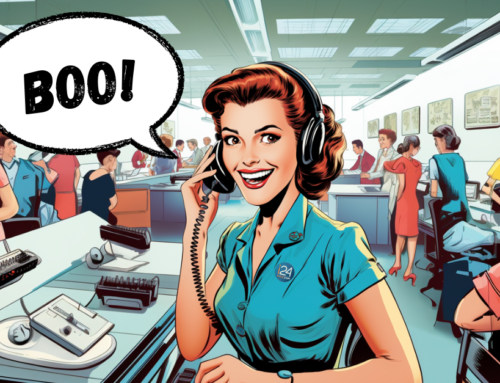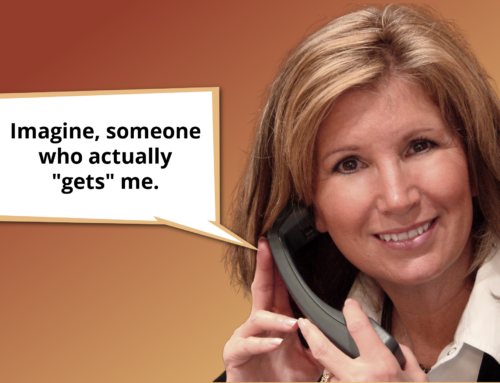“Empathy” is one of those “touchy, feely” words that makes us uncomfortable.
If you’re trapped in the 80’s “greed is good” mindset, you’d probably view empathy as a sign of weakness.
If you’re more “enlightened”, you may think it’s the essence of being human.
Some people are hyper-empathetic. They hyperventilate by absorbing the emotional and physical pain of others.
Putting yourself in someone else’s shoes can be dangerous – Too small and you get blisters, too big, you trip and fall.
Empathy has to be authentic. You can’t fake it.
Actually, you can.
They’re called psychopaths.
Empathy in the Workplace
While there are physiological factors at play, empathy is also a learned skill.
Yes, you can learn to feel someone’s pain.
“Empathy is a cognitive attribute, not a personality trait.” ~ Dr. Mohammadreza Hojat
We expect our people working in healthcare and social services to show empathy, but what about other businesses?
What about call centers?
People want to speak to people – not a machine or “chatbot”.
Simple problems often aren’t simple.
They come with a lot of emotional baggage and that baggage just gets heavier and heavier the longer it’s not resolved.
Gary Blair, President of i24 Call Management Solutions, is someone I consider empathetic without being an emotional sponge.
“Empathy is the most important skill anyone in customer service can bring to the table.
Our work culture reflects our mission to listen, understand, help and engage with our clients and each other.”
Companies that are “empathetic” take the time to understand their customers. They then apply these insights to every aspect of their businesses.
Anne Loehr, leadership and management speaker, shared 7 Practical Tips for Increasing Empathy
She lists the benefits as being:
1. Better understanding of needs
2. Better conflict resolution
3. Better business culture
How do we achieve these?
1. Listen and don’t interrupt.
2. Be fully present when you are with people and tune into nonverbal communication.
3. Smile at people.
4. Use people’s names and encourage them.
5. Try to empathize with people whose beliefs you don’t share.
6. Give genuine recognition.
7. Challenge yourself to have a deeper conversation with a colleague.
How does a company show empathy?
We can start with authentic customer service and not customer “processing”.
B.L. Ochman, a friend, and panelist on my Ray2Go show, ran her own company that dealt with customer complaints. She said that after dealing with hundreds of challenging cases, she understood that all people want is for someone to say:
“I’m sorry that happened to you. Let’s see how we can fix that.”
'People just want to be heard. #empathy'Click To Tweet
We have to be able to relate to people and understand their desires or beliefs.
“Our job is not to create or change that belief, it’s simply to confirm and validate that belief through the products and content we create.” – Damian Farnworth
Like the word, “social”, empathy is something older generations of business people have a problem getting their heads (and hearts) around.
Managers who cared about their employees often did so at arm’s length.
Customers weren’t nurtured, they were processed.
Of course, is a generalization.
But speaking from personal experience, showing “weakness” in the workplace slides you to the bottom of the totem pole.
The workplace can still be a sexist. You just have to listen to mass media to see it reflected in our public discourse.
“Girls” who were sensitive were avoided.
Men who were tough were promoted.
It takes intellectual and emotional intelligence to run a business.
Is your workplace empathetic?














